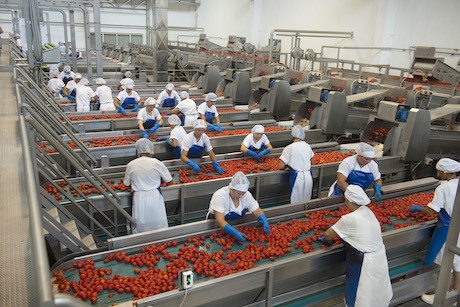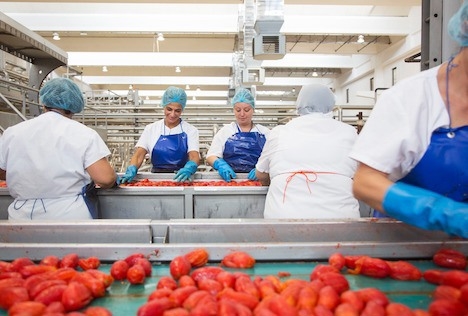Respect for your privacy is our priority
The cookie is a small information file stored in your browser each time you visit our web page.Cookies are useful because they record the history of your activity on our web page. Thus, when you return to the page, it identifies you and configures its content based on your browsing habits, your identity and your preferences.
You may accept cookies or refuse, block or delete cookies, at your convenience. To do this, you can choose from one of the options available on this window or even and if necessary, by configuring your browser.
If you refuse cookies, we can not guarantee the proper functioning of the various features of our web page.
For more information, please read the COOKIES INFORMATION section on our web page.


 "The 2023 campaign, now in its final phase, has seen about 10% more hectares of cultivated land than last year. This will allow us to process about 200,000 tons of tomatoes, 100% produced in Apulia, despite the adverse weather conditions that continue to affect the region”. These are the words of Gianmarco Laviola, Managing Director of Princes Industrie Alimentari.
"The 2023 campaign, now in its final phase, has seen about 10% more hectares of cultivated land than last year. This will allow us to process about 200,000 tons of tomatoes, 100% produced in Apulia, despite the adverse weather conditions that continue to affect the region”. These are the words of Gianmarco Laviola, Managing Director of Princes Industrie Alimentari. It is well known that the price of tomato derivatives has risen sharply in the last three years. Prices have doubled, raising the question of what is the right value for a can of tomato paste.
It is well known that the price of tomato derivatives has risen sharply in the last three years. Prices have doubled, raising the question of what is the right value for a can of tomato paste. "We have been working in this direction," concludes Gianmarco Laviola, "with investments aimed, for example, at making our packaging more sustainable by introducing cardboard made from environmentally friendly sources and without the use of plastic, glue or other chemical materials. We have carried out ad hoc research projects on the needs of our customers in each of the markets in which we operate. At the same time, we are committed to improving social sustainability and ensuring ethical working conditions. We recently signed an agreement with Ghetto Out-Casa Sankara, a voluntary organization dedicated to creating an alternative reality to the ghetto, where they can live and design a legal and dignified path of economic and social inclusion. This agreement has provided for the social and labor integration of 32 foreign citizens in a vulnerable condition, guests of Casa Sankara, in different production areas of our plant.”
"We have been working in this direction," concludes Gianmarco Laviola, "with investments aimed, for example, at making our packaging more sustainable by introducing cardboard made from environmentally friendly sources and without the use of plastic, glue or other chemical materials. We have carried out ad hoc research projects on the needs of our customers in each of the markets in which we operate. At the same time, we are committed to improving social sustainability and ensuring ethical working conditions. We recently signed an agreement with Ghetto Out-Casa Sankara, a voluntary organization dedicated to creating an alternative reality to the ghetto, where they can live and design a legal and dignified path of economic and social inclusion. This agreement has provided for the social and labor integration of 32 foreign citizens in a vulnerable condition, guests of Casa Sankara, in different production areas of our plant.”



























